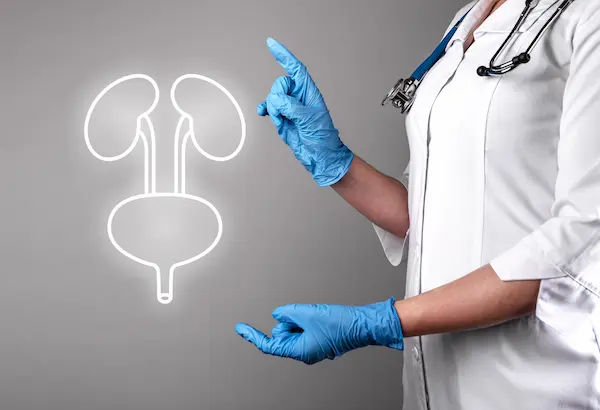Silent Signs of Colon Cancer You Should Never Ignore
Discover the subtle and silent signs of colon cancer that often go unnoticed. Learn which symptoms warrant medical attention and how early detection can significantly improve outcomes and save lives.


Colon cancer often begins quietly, with subtle signs that are easy to dismiss as a minor digestive issue. This stealthy nature is what makes it so dangerous—and so important to understand. As one of the most common cancers worldwide, its early detection is directly linked to dramatically higher survival rates. This article will guide you through the often-missed signs and symptoms of colon cancer, empowering you with knowledge. We’ll move beyond the basic list to explore what these symptoms truly feel like, how they might present differently in men and women, and why listening to your body could be a life-saving decision. Recognizing these signals is the first critical step toward seeking timely medical advice and intervention.
What is Colon Cancer?
The colon, or large intestine, is the final part of our digestive system. Its primary job is to reabsorb water and process waste products from the food we eat before they are expelled. The rectum is the last several inches of the colon that serves as a holding chamber for stool. Cancer that starts in either of these areas is collectively known as colorectal cancer.
Most colon cancers begin as small, noncancerous (benign) clumps of cells called adenomatous polyps. Over time, some of these polyps can evolve into colon cancers. This transformation can take many years, which is why screening is so effective. Finding and removing polyps during a routine colonoscopy can actually prevent cancer from developing in the first place.
The Most Common Signs and Symptoms of Colon Cancer
Paying attention to persistent changes in your body's patterns is crucial. Here are the key symptoms to watch for.
Persistent Changes in Bowel Habits
- One of the most common early signs is a change in your bathroom habits that lasts for more than a few days. This isn't about a single day of diarrhea from something you ate. We're talking about a consistent shift—lasting four weeks or more—that is new and unexplained.
Diarrhea, Constipation, and Narrow Stools
- This can manifest as chronic diarrhea, new-onset constipation, or a noticeable change in the consistency of your stool. A tell-tale sign is often "pencil-thin" or narrow stools, which can indicate that a tumor is partially obstructing the passageway through the colon, physically shaping the stool as it passes.
Rectal Bleeding and Blood in Stool
- The sight of blood can be alarming. While it's a classic sign of hemorrhoids, it should never be automatically dismissed as such. Blood from colon cancer can appear as bright red if the tumor is near the rectum, or it can be darker, maroon, or even tar-like (melena) if the bleeding is happening higher up in the colon. It's vital to get any rectal bleeding checked by a doctor to determine the cause.
Abdominal Discomfort
- Persistent abdominal cramps, gas, bloating, or a feeling of fullness can be symptoms. The pain may be a dull ache or sharper cramps. This is often caused by a tumor causing a partial blockage or irritating the lining of the bowel. If these sensations are frequent, severe, or don't resolve with simple dietary changes, it's time to investigate further.
The Feeling of Incomplete Evacuation
- Medically known as tenesmus, this is the persistent feeling that you need to have a bowel movement, even right after you've just had one. It can feel frustrating and uncomfortable. This sensation can occur when a rectal tumor creates a false signal for the need to pass stool.
Unexplained Weakness, Fatigue, and Weight Loss
- Cancer is a energy-consuming process. Tumors can cause fatigue that isn't relieved by rest. Unexplained weight loss of 5% or more of your body weight without trying is always a red flag that warrants a medical consultation. Your body is working hard to fight the disease, which can lead to this systemic weakness.
Iron-Deficiency Anemia
- This is a particularly insidious symptom because you can't see it. A slowly bleeding tumor inside the colon can lead to chronic blood loss. This loss may not be visible in the stool (occult blood) but can deplete your body's iron stores, leading to iron-deficiency anemia. Symptoms of anemia include pale skin, extreme fatigue, weakness, and shortness of breath. For men and post-menopausal women, iron-deficiency anemia is almost always considered a sign that needs investigation with a colonoscopy to rule out a bleeding gastrointestinal lesion.
Consult Top Specialists
Symptoms in Specific Populations
Here are some symptoms of colon cancer in specific populations:
Colon Cancer Symptoms in Women:
- The core symptoms are largely the same. However, women may be more likely to initially attribute bloating, abdominal cramps, and fatigue to gynecological issues like ovarian cysts, fibroids, or menstruation. This can sometimes lead to a delay in diagnosis. It's important for women to know that persistent digestive changes should be evaluated on their own merit, not just chalked up to "female problems."
Colon Cancer Symptoms in Men:
- Men experience the standard symptoms. A key difference is that iron-deficiency anemia is a massive red flag in men, as they have fewer causes for blood loss than pre-menopausal women. Any diagnosis of anemia in a man should prompt an investigation of the GI tract.
Recognising Early Signs in Younger Adults
- While risk increases with age, rates of colon cancer in young adults are rising alarmingly. Younger people and their doctors are more likely to dismiss symptoms like rectal bleeding as hemorrhoids or changes in habits as IBS. If you are under 45 and experiencing persistent symptoms, advocate for yourself and seek a thorough evaluation.
Key Risk Factors You Need to Know
Understanding your risk profile can help you and your doctor decide on an appropriate screening timeline.
Non-Modifiable Risks (Age, Family History, Genetics)
- The single biggest risk factor is age—most cases are found in people over 50, though the age is dropping. A personal or family history of colon cancer or polyps significantly increases risk. Certain inherited syndromes like Lynch syndrome or Familial Adenomatous Polyposis (FAP) also confer a very high risk.
Modifiable Risks (Diet, Smoking, Sedentary Lifestyle)
- A diet low in fiber and high in fat, red meat, and processed meats is linked to higher risk. Other significant factors include smoking, heavy alcohol use, obesity, and a sedentary lifestyle. Taking control of these factors can help lower your risk.
The Link Between Inflammatory Bowel Disease (IBD) and Risk
- People with chronic inflammatory conditions of the colon, such as Crohn's disease or ulcerative colitis, have an increased risk of developing colorectal cancer. This risk is managed through more frequent and earlier surveillance with colonoscopies.
How Colon Cancer is Diagnosed and Screened For?
Colonoscopy: This is the most comprehensive screening tool. A long, flexible tube with a camera is used to examine the entire colon and rectum. The key advantage is that doctors can both find and remove polyps during the same procedure, making it a powerful preventive tool.
Other Screening Tests:
- Fecal Immunochemical Test (FIT): Checks for hidden blood in the stool. It's done annually.
- Stool DNA Test (e.g., Cologuard): Checks for blood and certain DNA markers from cancer cells in the stool. It's done every three years.
- Flexible Sigmoidoscopy: Examines only the lower part of the colon. It's done every 5 years.
It's important to note that if any of these non-colonoscopy tests are positive, a follow-up colonoscopy is required for diagnosis.
What Happens If Something is Found?
If a suspicious area is seen during a colonoscopy, the doctor will take a small sample (biopsy) to be analyzed by a pathologist for cancer cells. If cancer is confirmed, imaging tests like CT scans of the chest, abdomen, and pelvis are used to determine the stage—whether it has spread to lymph nodes or other organs.
Prevention: Can You Reduce Your Risk?
Screening is the number one most effective form of prevention. It can find cancer early when it's most treatable, and it can find and remove polyps before they ever turn into cancer. Adhering to recommended screening guidelines is the best step you can take.
Dietary and Lifestyle Changes That Make a Difference
Adopting a healthy lifestyle can significantly lower risk. This includes:
- Eating a diet rich in fruits, vegetables, and whole grains.
- Limiting red and processed meats.
- Maintaining a healthy weight.
- Exercising regularly.
- Avoiding smoking and limiting alcohol consumption.
Conclusion
The signs of colon cancer can be subtle and easy to explain away, but your health deserves more than a assumption. Knowledge is your first line of defense. By understanding these symptoms and risk factors, you are empowered to have an informed conversation with your doctor. Remember, these symptoms often have benign causes, but ruling out a serious condition like cancer brings immense peace of mind. Early detection transforms colon cancer from a deadly disease into a highly treatable one. If you are experiencing any of these persistent signs, or if you are due for a screening, take that proactive step today. If symptoms persist beyond two weeks, consult a doctor online with Apollo24|7 for further evaluation and to discuss if a screening test is right for you.
Consult Top Specialists
Consult Top Specialists

Dr. Asawari Kesari Kapoor
Obstetrician and Gynaecologist
23 Years • M.B.B.S, D.G.O(Mumbai) ,D.G.O (C.P.S), D.N.B (OBGY)
Delhi
Apollo Hospitals Indraprastha, Delhi
(25+ Patients)

Dr Homeira Nishat
Obstetrician and Gynaecologist
34 Years • MBBS, Diploma in Obstetrics & Gynaecology
Bengaluru
Cure Hospital and Clinic, Bengaluru

Dr. Smita Ghatak
Obstetrician and Gynaecologist
10 Years • MBBS, DGO, DNB Obstetrics & Gynaecology
New Town
Prime Diagnostic and Polyclinic, New Town

Dr. Debashree Saha
Obstetrician and Gynaecologist
4 Years • MBBS, MS (Obstetrics & Gynaecology)
Kolkata
DR. DEBASHREE SAHA Clinic, Kolkata

Dr. Korimilli Nisha
Obstetrician and Gynaecologist
10 Years • MBBS, MS (Obstetrics and Gynaecology)
Bansdroni
Siddhita Healthcare., Bansdroni
Consult Top Specialists

Dr. Asawari Kesari Kapoor
Obstetrician and Gynaecologist
23 Years • M.B.B.S, D.G.O(Mumbai) ,D.G.O (C.P.S), D.N.B (OBGY)
Delhi
Apollo Hospitals Indraprastha, Delhi
(25+ Patients)

Dr Homeira Nishat
Obstetrician and Gynaecologist
34 Years • MBBS, Diploma in Obstetrics & Gynaecology
Bengaluru
Cure Hospital and Clinic, Bengaluru

Dr. Smita Ghatak
Obstetrician and Gynaecologist
10 Years • MBBS, DGO, DNB Obstetrics & Gynaecology
New Town
Prime Diagnostic and Polyclinic, New Town

Dr. Debashree Saha
Obstetrician and Gynaecologist
4 Years • MBBS, MS (Obstetrics & Gynaecology)
Kolkata
DR. DEBASHREE SAHA Clinic, Kolkata

Dr. Korimilli Nisha
Obstetrician and Gynaecologist
10 Years • MBBS, MS (Obstetrics and Gynaecology)
Bansdroni
Siddhita Healthcare., Bansdroni
More articles from Colon Cancer
Frequently Asked Questions
At what age should I start getting screened for colon cancer?
For most people at average risk, screening begins at age 45. However, if you have a family history or other risk factors, your doctor may recommend starting earlier, sometimes as young as 40 or even 10 years before the age at which your youngest relative was diagnosed.
Can you have colon cancer with no symptoms at all?
Absolutely. This is why screening is so critical. In its early stages, colon cancer often causes no noticeable symptoms. Screening aims to find these early, asymptomatic cancers—or the precancerous polyps that cause them—when treatment is most effective.
Is colon cancer curable?
Yes, especially when detected early. The five-year survival rate for localized colon cancer (that hasn't spread outside the colon) is about 91%. This number underscores the life-saving importance of early detection through screening and paying attention to symptoms.
What's the difference between irritable bowel syndrome (IBS) and colon cancer symptoms?
The symptoms can overlap significantly, including cramping, bloating, and changes in bowel habits. However, 'red flag' symptoms that are not typical of IBS alone include rectal bleeding, unexplained weight loss, iron-deficiency anemia, and symptoms that begin after age 50. A doctor can help differentiate between the two.
How can I prepare for a colonoscopy?
Preparation involves following a clear-liquid diet for about 24 hours before the procedure and drinking a prescribed laxative solution to completely empty your colon. While the prep is often considered the worst part, it is crucial for allowing the doctor to get a clear view. The procedure itself is performed under sedation, so you likely won't feel or remember it.

